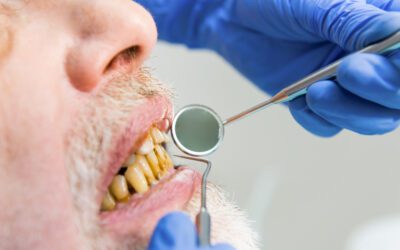Need an implant? You are probably asking yourself, “what dentist does implants?”
Dental implants are a popular and effective solution for replacing missing teeth when restoring one's smile. This advanced dental treatment involves surgically inserting titanium posts into the jawbone, acting as new “roots” for the artificial teeth. With their ability to provide a stable and natural-looking result, many seek dentists specializing in this type of procedure.
So, what dentist does implants?
Typically, oral and maxillofacial surgeons are the best-qualified professionals for this task (at least for the surgical portion). These specialists have undergone extensive training in various aspects of dental surgery, including the knowledge of anatomic landmarks within the jawbone, which is crucial for the precise placement of implants.
Additionally, some periodontists, who specialize in treating structures that support teeth, such as gums and bones, may also be involved in the planning and execution of dental implant procedures.
Patients must choose the right dental professional for their implant needs, ensuring they receive the highest quality care and the best possible outcomes. By doing so, they can regain confidence in their appearance and improve their overall dental health and well-being.
The Implant Process Overview
Understanding Dental Implants
Dental implants are an effective solution for replacing missing teeth with artificial ones.
Artificial teeth serve as a foundation for fixed or removable tooth replacements, providing a strong and natural feel. Dental implants play a significant role in restoring a person's ability to chew and improving their appearance.
Components of Implants
An implant consists of three basic components: the implant, the abutment, and the crown.
The implant is a titanium or titanium-alloy screw surgically placed into the jawbone, serving as the artificial root for the tooth. The titanium material fuses with the jawbone, providing stability and preventing the implant from slipping or causing bone damage. This process is known as osseointegration.
The abutment connects the implant to the crown, the visible part of the artificial tooth.
The crown can be made from various materials, including porcelain, ceramic, or metal alloys. It is designed to match the color, shape, and size of the patient's remaining natural teeth.
Implant Procedures
Implant surgery is a multi-step process that usually takes place over the course of several appointments.
The first step involves the placement of the titanium implant into the jawbone. After the implant is securely placed, the jawbone and gum tissue needs time to heal, typically taking several months. During this time, osseointegration occurs, allowing the implant to become a stable and integral part of the jawbone.
Once the healing process is complete and the implant is securely integrated into the jawbone, the abutment is attached to the implant.
The final step is placing the custom-made crown, which is affixed to the abutment. The patient is left with a dental implant that looks, feels, and works like a natural tooth.
It is important to note that not all dentists perform implant surgeries.
The dentists that perform such procedures include periodontists, oral and maxillofacial surgeons, and prosthodontists. These specialists have received additional education and training in dental implants and are well-equipped to handle implant procedures successfully.
Example Implant Timeline
This is an informational overview only, and this will vary depending on the procedure, implant technology used, and the dentist.
Please consult with your implant professional for precise timelines.
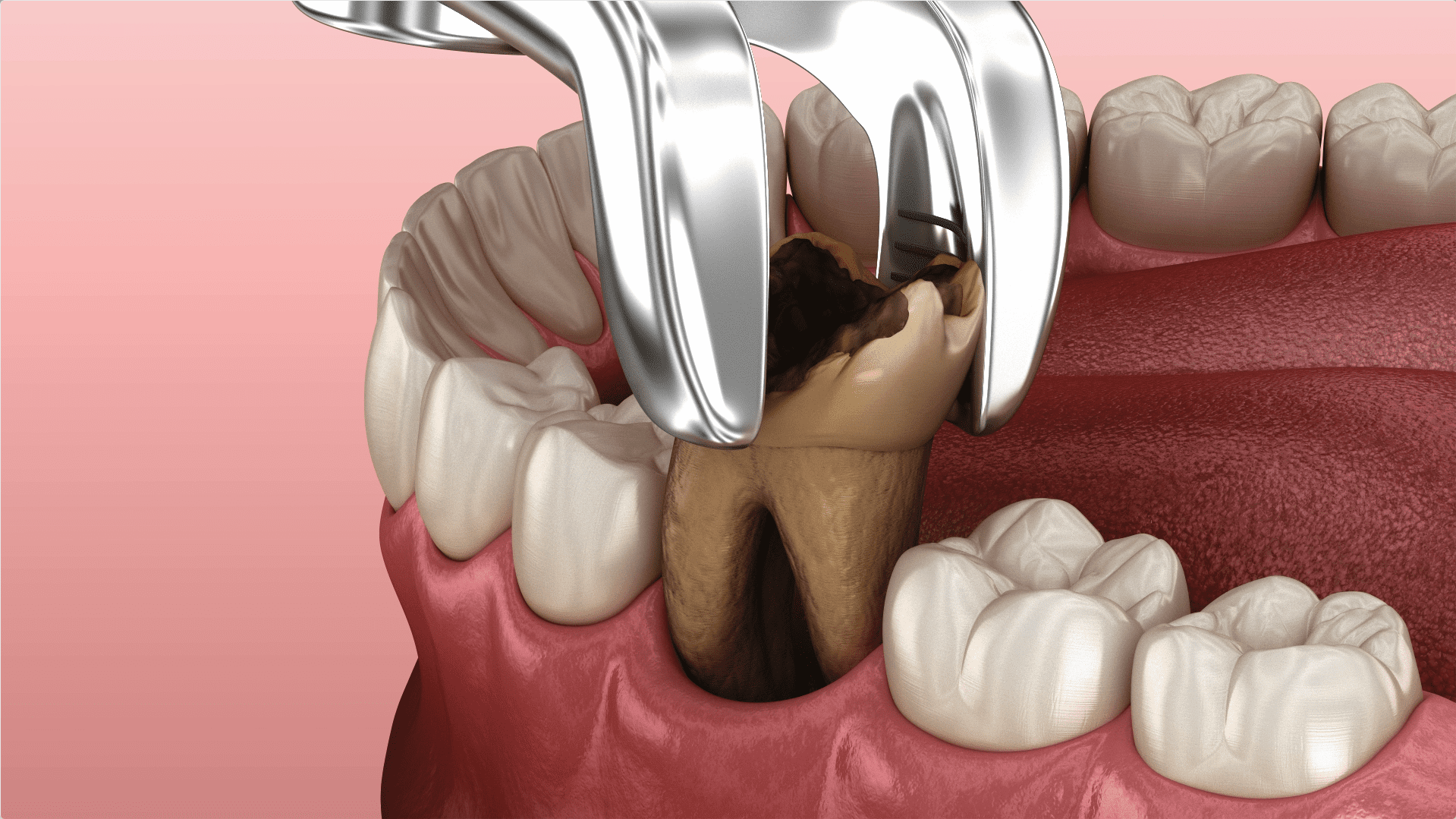
Tooth Extraction
If needed, the tooth is extracted and bone grafting materials added.
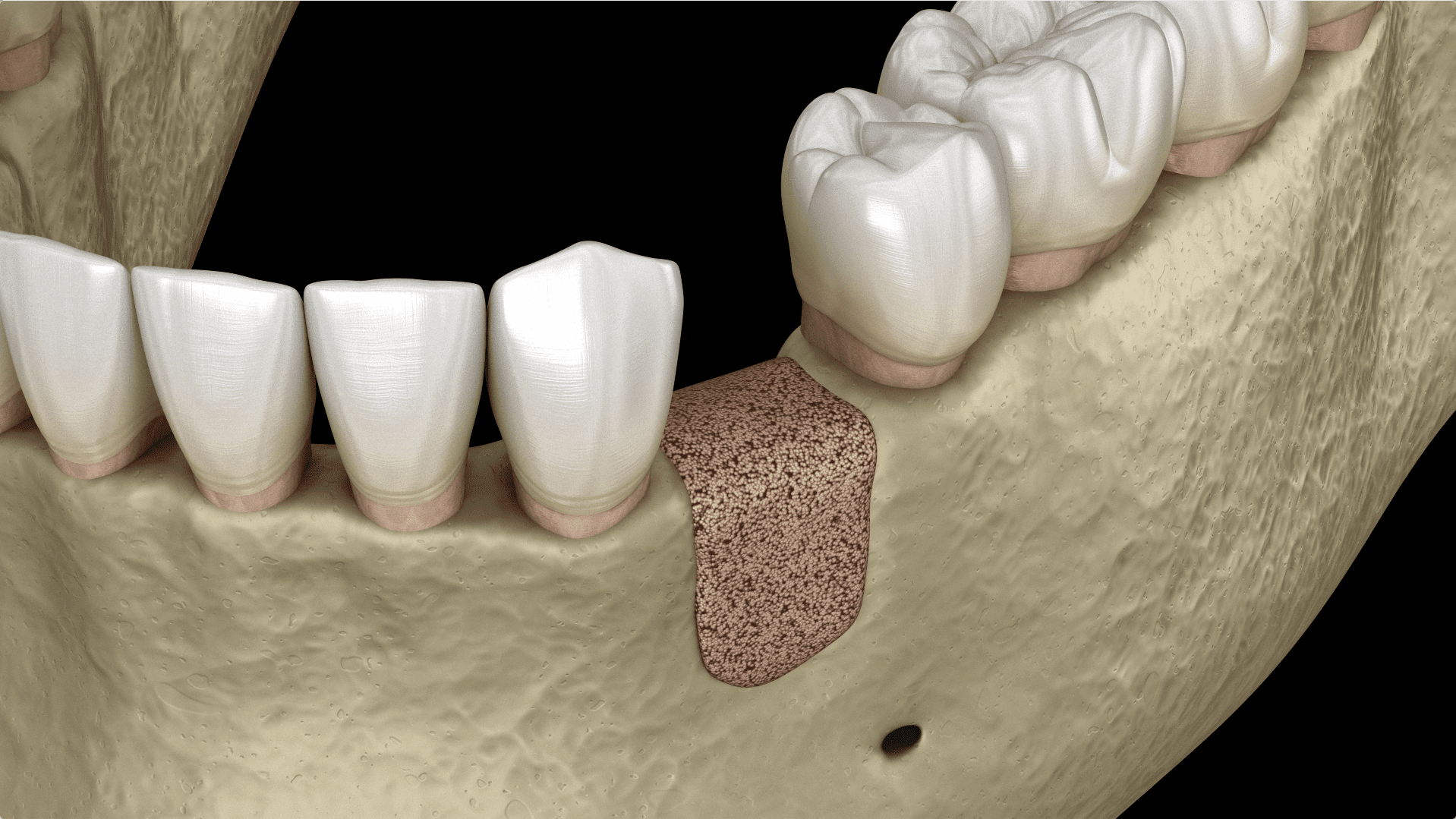
Bone Graft Material Inserted
Once the tooth is extracted, the bone grafting material is placed in the socket, and the gum is stitched over the bone graft material to protect the area.
Bone Graft Healing
Your implant specialist will allow time for the bone graft to fuse with the jawbone.
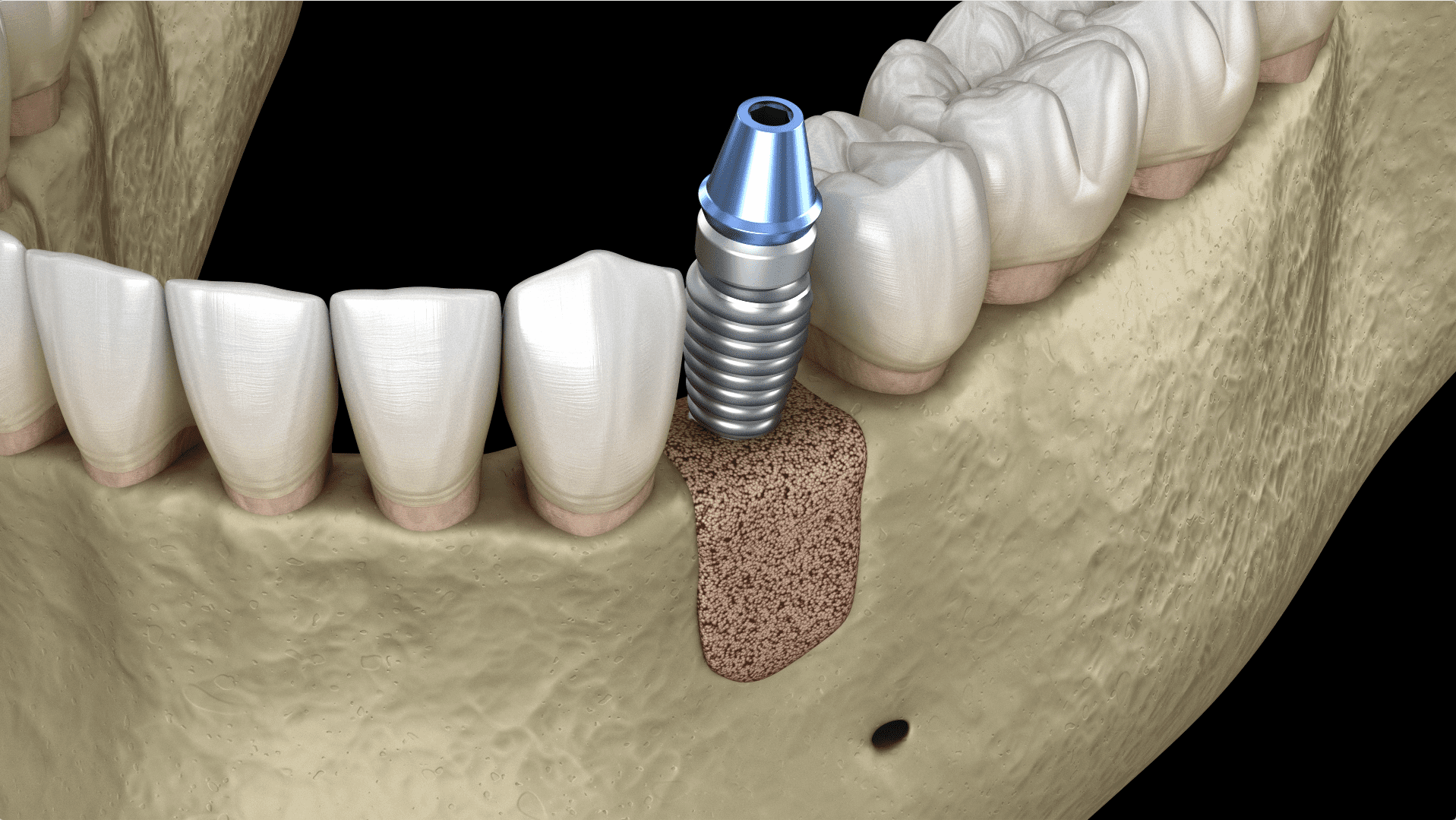
Implant Placed
A titanium or titanium-alloy screw is surgically placed into the jawbone, serving as the artificial root for the tooth.
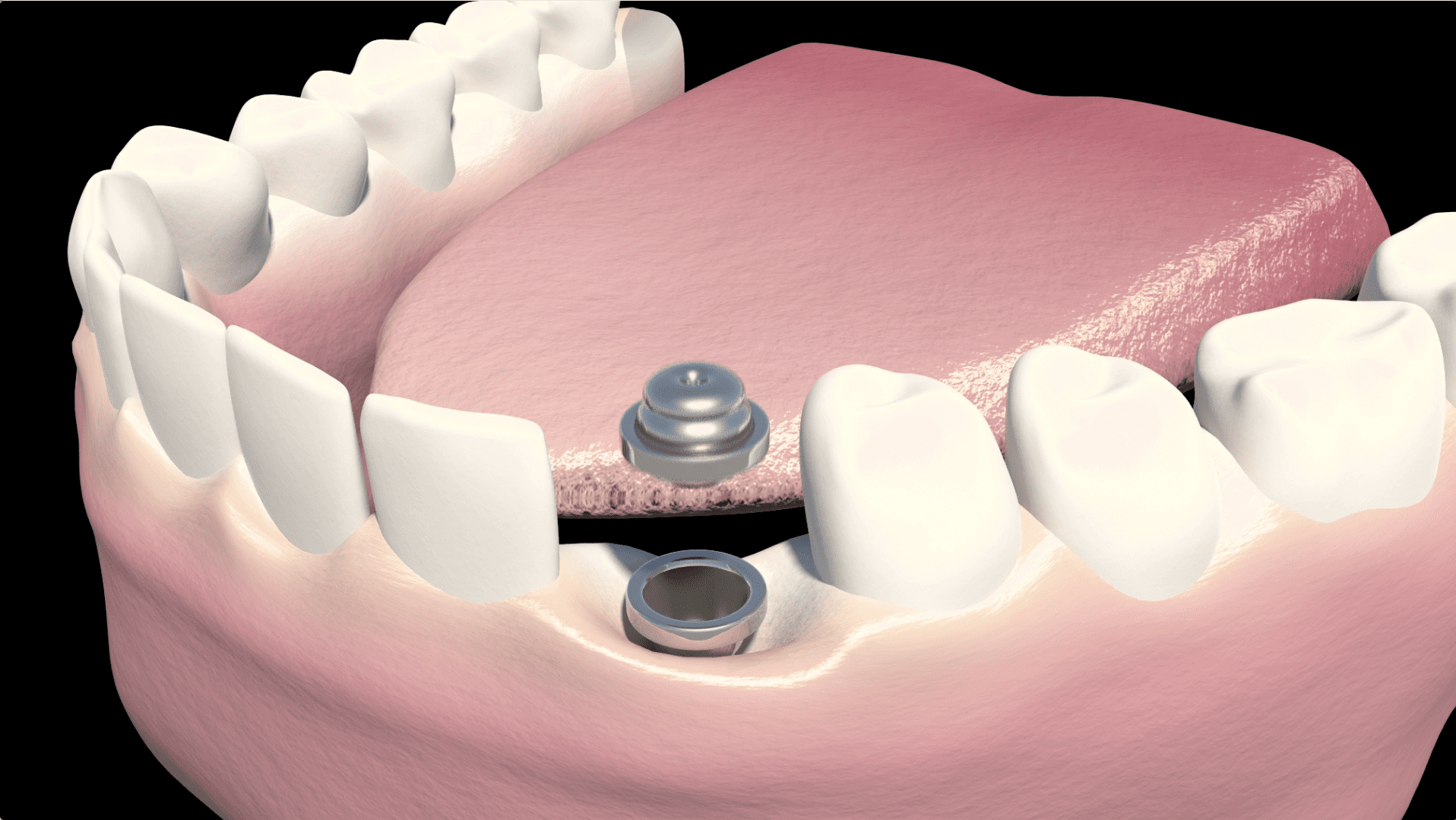
Abutment Placed
In the second visit, after the implant is inserted into the jaw, an abutment is placed over it and the gum is stitched over it and it heals over this area.
Osseointegration
The titanium material fuses with the jawbone, providing stability and preventing the implant from slipping or causing bone damage.
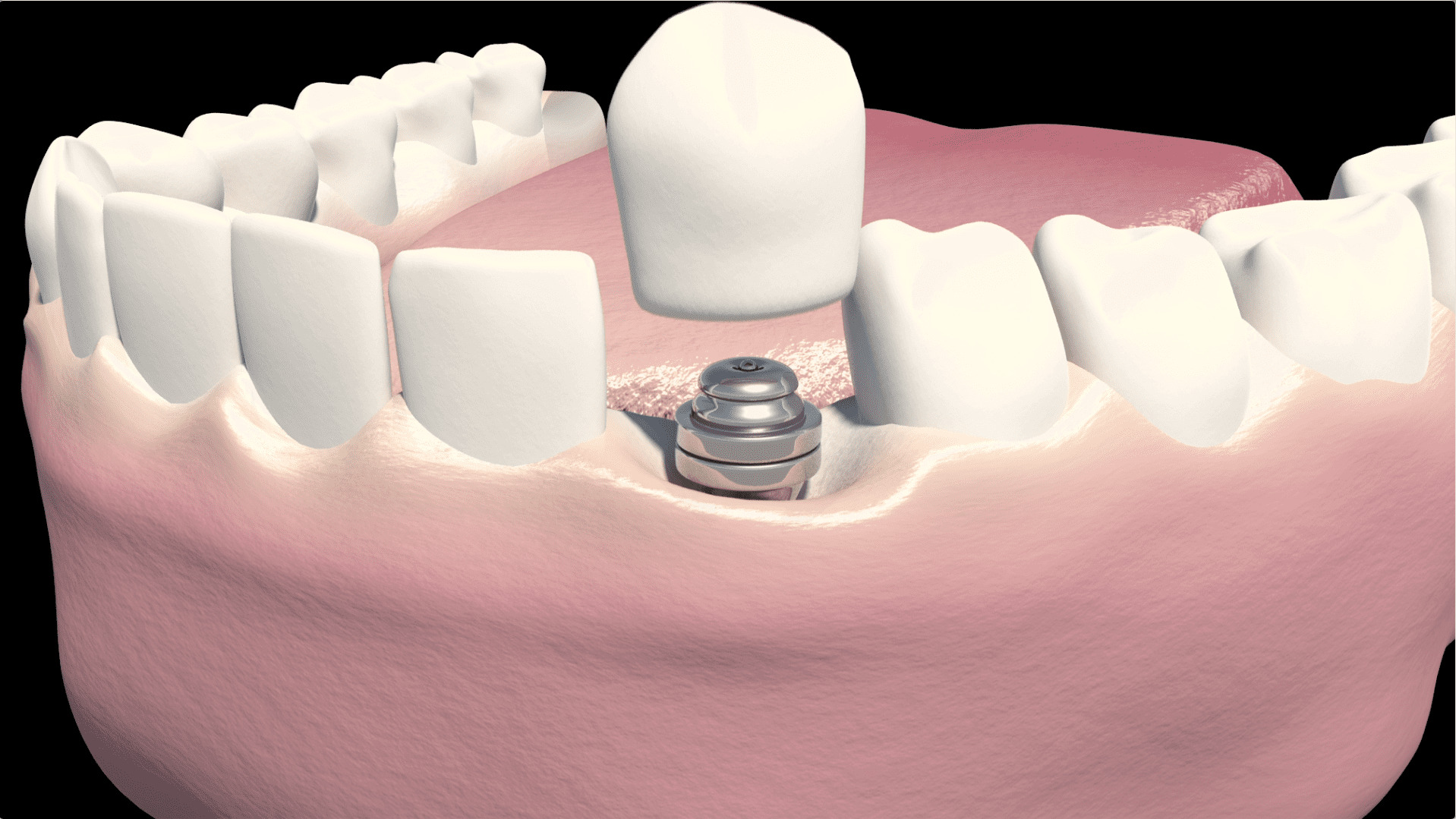
Crown Attached
On the 3rd visit, the crown is attached to the abutment and fitted. Fitting may take multiple visits.
Dentists vs. Specialists
Regarding dental implants, various dental professionals can handle the procedure. This section will discuss the roles of general dentists and specialists such as periodontists, oral surgeons, and prosthodontists in dental implants.
General Dentists
General dentists are typically the first point of contact for patients seeking dental care.
They are trained in various dental treatments, including dental implant procedures. While most dentists are qualified to perform implant surgery, some may refer patients to specialists for complex cases or if they lack the necessary equipment and facilities.
Periodontists
Periodontists specialize in treating the supporting structures of the teeth, such as the gums and bones.
They have expertise in managing gum-related issues and the underlying bone, making them suitable for dental implant procedures to ensure the implant's proper integration with the surrounding tissues.
Oral Surgeons
Oral and maxillofacial surgeons specialize in treating mouth, jaw, and face conditions, including dental implant surgeries.
Their expertise can be particularly helpful for complex cases or when additional facial surgeries are needed for the implant process.
Prosthodontists
Prosthodontists focus on designing and fitting artificial teeth, such as dental implants.
Their role in the dental implant process involves planning the treatment and creating the prosthetic tooth or teeth placed on the implant. They work closely with other dental professionals, such as periodontists and oral surgeons, to coordinate the aspects of the dental implant procedure and ensure a successful outcome.
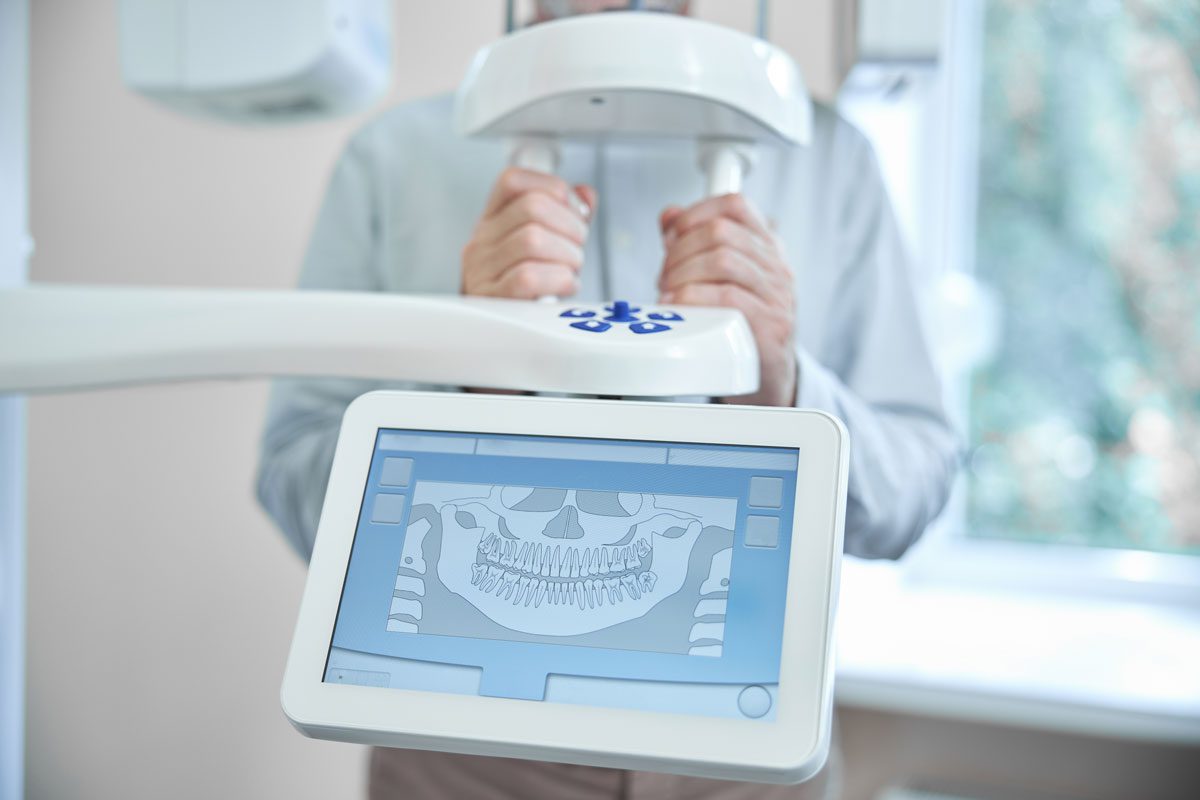
What Dentist Does Implants? Choosing the Right One
Selecting an appropriate dentist for dental implants is vital to ensure a successful procedure.
While education, training, and experience are important factors, choosing a dentist who listens to your needs and effectively communicates treatment options is essential.
Credentials and Experience
Ensure the dentist has proper qualifications, such as a postgraduate degree in dental implant treatments.
Additionally, check their years of experience in the field and any specialized training they may have received. Dentists who primarily perform dental implant procedures, such as oral surgeons or maxillofacial surgeons, are often the best choice for implant surgery.
Techniques and Technologies
Confirm that the dentist is up-to-date with the latest techniques and technologies for dental implants, such as 3-D mapping and computer-guided implanting.
These advancements can make the procedure less invasive and more efficient. Ask the dentist about their techniques and any new technologies they have adopted in their practice.
Patient Reviews and Testimonials
Gathering feedback from previous patients is an essential step in the decision-making process.
You can ask friends and family members about their experiences with dental implants or search online for patient reviews and testimonials. This will give you a clearer idea of the quality of the dental implant service provided by the dentist.

Cost and Insurance Considerations
Dental Implant Prices
A dental implant procedure's cost can vary based on factors such as the location, the dentist's expertise, and the complexity of the operation.
The American Dental Association's Health Policy Institute cost survey estimates that the total cost of a dental implant, abutment, crown, and other necessary procedures ranges from $3,100 to $5,800.
A single tooth replacement in the U.S. can cost between $3,000 and $4,500, while a complete set replacement can average between $20,000 and $45,000, as stated by Verywell Health.
Insurance Coverage
Many dental insurance policies do not cover the cost of implants, making paying for the procedure more challenging.
However, multiple options for dental insurance for implants exist to help pay for them. To ease the financial burden, shopping around and finding a dental insurance plan that covers implant procedures is essential.
There are various dental insurance plans and prices available, so it's crucial to review the coverage and benefits of each plan before making a decision.
Payment Options
Aside from insurance, patients can explore different payment options to make dental implants more affordable. A lot of dental practices offer payment plans or financing options for expensive dental procedures, such as implants. Some standard payment options include:
-
- Interest-free or low-interest financing
- Monthly installment plans
- Healthcare credit cards (e.g., CareCredit)
- In-house dental practice financing
Discussing these payment options with the dental practice before committing to the implant procedure is important to ensure you're comfortable with the financial arrangement.
Aftercare and Maintenance
Post-Procedure Care
Following dental implant surgery, it is crucial to maintain proper oral hygiene and follow the dentist's instructions to ensure successful healing.
Patients should gently brush the area around the implant and avoid directly touching the implant site with a toothbrush during the initial healing stages. Traditional toothbrushes or dental implant cleaning brushes can clean the surrounding teeth and gums. Rinsing with a prescribed mouthwash can also help keep the area clean and infection-free.
It is normal to experience mild swelling and discomfort after the surgery. Using an ice pack on the affected area and taking over-the-counter pain medications, as the dentist recommends, can help alleviate pain and reduce inflammation.
Long-Term Maintenance
Even though they are artificial, dental implants require the same care and maintenance as natural teeth.
This includes daily brushing, flossing, and using specially designed brushes like interdental brushes to clean areas around the implant, teeth, and gums. Regular dental checkups and cleanings are vital in monitoring the health of the implant and the surrounding tissue.
Implants are designed to last many years, but their longevity depends on proper care and maintenance. Things that can affect the success of dental implants include:
-
- Smoking
- History of radiotherapy
- Systemic health issues
- Local bone quality and quantity
By adhering to proper aftercare and long-term maintenance practices, patients can ensure the success and longevity of their dental implants.
What Dentist Does Implants? Final Thoughts
In dentistry, dental implants have become a popular solution for individuals with missing teeth.
They offer a more natural look and feel, functioning similarly to real teeth. With their durability and improved aesthetics, it's no wonder many patients opt for implants over dentures or bridges.
If implants are the right choice, the next step is to find a dentist that does implants. So, what dentist does implants?
When choosing the right professional to perform dental implant procedures, one should consider dental specialists have the required expertise and skills to deal with the complexities of dental implant treatments effectively. These can include General Dentists, Periodontists, Prosthodontists, and Oral Surgeons.
Dental implant surgery offers various benefits, such as improved speech and support for the jawbone structure (WebMD). However, it's essential to consult with a qualified dental professional before embarking on this journey.
They can help determine the most suitable treatment plan based on an individual's unique dental needs and overall oral health.
Good luck with the search!



